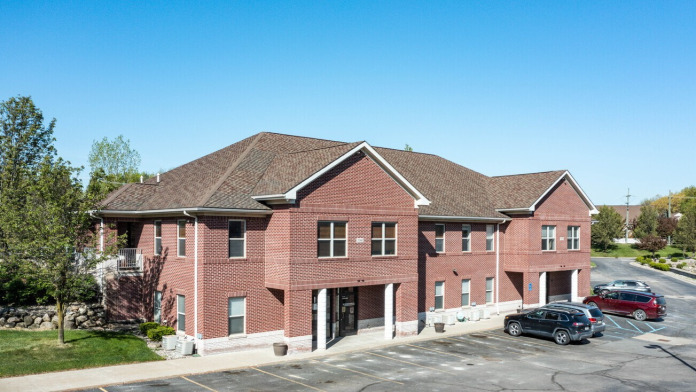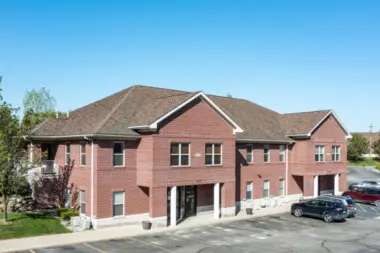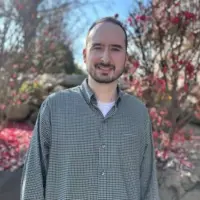About Key Development Center
Key Development Center in Brighton, Michigan is a center that provides support for individuals with substance use disorder. They provide outpatient services that include detoxification, counseling, and relapse prevention.
If your needs are more extensive, you can enroll in their intensive outpatient services, which meet three hours per day, three times per week for three weeks. Their outpatient detoxification program utilizes safe medications like methadone, buprenorphine, and naltrexone to help you stay comfortable as you manage withdrawal symptoms. Their skilled care teams will closely monitor you to ensure you’re progressing through the treatment in a way that’s conducive to your long-term recovery.
Counseling in Brighton, Michigan
The counselors at Key Development Center are skilled and compassionate. They will walk alongside you and provide you with emotional support. These counseling services can help you identify coping strategies that will be useful as you conquer addiction.
If transportation is a problem, you can utilize their telehealth option to enable therapy sessions from the comfort of your own home. Some past clients of Key Development Center have positively praised the center for the supportiveness and professionalism of their staff. Other past clients have attested to its confidential and comfortable environment.
Paying For Your Treatment
We appreciate the wide array of options available to help you pay for treatment. They take Medicaid and many private insurance plans. They also accept cash payments. Additionally they might provide you with a sliding fee scale that’s based on your income, household size, and other factors. Their admissions team will help you get all of these details figured out.
Spending Time in Livingston County
There are many different ways to relax and recharge in the area when you’re not in treatment. If you enjoy the outdoors, there’s the Brighton Recreation Area where you can go fishing, hiking, or camping. Downtown Brighton also offers a number of restaurants, shopping, and even fun events for some social interaction. Don’t forget about Mill Pond Park which is an ideal place to go for a casual stroll.
Latest Reviews
Rehab Score
Gallery


Other Forms of Payment
Medicaid is a state based program that helps lower-income individuals and families pay for healthcare. Medicaid covers addiction treatment so those enrolled can use their coverage to pay for rehab. When a program accepts Medicaid the client often pays very little or nothing out of their own pocket.
Self-pay involves paying for treatment out of your own pocket. You can use savings or credit, get a personal loan, or receive help from family and friends to fund your treatment. If you don't have insurance or your insurance plan doesn't cover a specific program, self-pay can help ensure you still get the care you need.
Financial aid can take many forms. Centers may have grants or scholarships available to clients who meet eligibility requirements. Programs that receive SAMHSA grants may have financial aid available for those who need treatment as well. Grants and scholarships can help you pai for treatment without having to repay.
Sliding scale payments are based on a client's income and family size. The goal is to make treatment affordable to everyone. By taking these factors into account, addiction recovery care providers help ensure that your treatment does not become a financial burden to you or your family, eliminating one barrier to care.
Addiction Treatments
Levels of Care
Outpatient Programs (OP) are for those seeking mental rehab or drug rehab, but who also stay at home every night. The main difference between outpatient treatment (OP) and intensive outpatient treatment (IOP) lies in the amount of hours the patient spends at the facility. Most of the time an outpatient program is designed for someone who has completed an inpatient stay and is looking to continue their growth in recovery. Outpatient is not meant to be the starting point, it is commonly referred to as aftercare.
Clients receiving care in an intensive outpatient program (IOP) typically have completed inpatient treatment, but some choose to enroll in IOP immediately following detox. Intensive outpatient rehabs offer high-level support for clients in early recovery and those at an increased risk of relapse. Most programs provide between nine and 20 hours of treatment per week, with services ranging from addiction counseling to recovery education to medication assisted treatment (MAT). Holistic therapies, such as acupuncture, are common.
Treatments
The goal of treatment for alcoholism is abstinence. Those with poor social support, poor motivation, or psychiatric disorders tend to relapse within a few years of treatment. For these people, success is measured by longer periods of abstinence, reduced use of alcohol, better health, and improved social functioning. Recovery and Maintenance are usually based on 12 step programs and AA meetings.
Drug rehab in Michigan provides personalized treatment to help individuals break this cycle and regain control of their lives. Treatment methods are used in various levels of care, including inpatient rehab, partial hospitalization programs, intensive outpatient programs, and standard outpatient treatment.
Many of those suffering from addiction also suffer from mental or emotional illnesses like schizophrenia, bipolar disorder, depression, or anxiety disorders. Individuals with substance abuse disorder and co-occurring mental health disorder are welcome at every KDC operated and contracted program. The co-occurring treatment at the center meets the special needs of clients with this condition. An on-site psychiatrist provides evaluation and medication monitoring.
Substance rehabs focus on helping individuals recover from substance abuse, including alcohol and drug addiction (both illegal and prescription drugs). They often include the opportunity to engage in both individual as well as group therapy.
Programs
Adult rehab programs include therapies tailored to each client's specific needs, goals, and recovery progress. They are tailored to the specific challenges adult clients may face, including family and work pressures and commitments. From inpatient and residential treatment to various levels of outpatient services, there are many options available. Some facilities also help adults work through co-occurring conditions, like anxiety, that can accompany addiction.
Young adulthood can be an exciting, yet difficult, time of transition. Individuals in their late teens to mid-20s face unique stressors related to school, jobs, families, and social circles, which can lead to a rise in substance use. Rehab centers with dedicated young adult programs will include activities and amenities that cater to this age group, with an emphasis on specialized counseling, peer socialization, and ongoing aftercare.
Clinical Services
Research clearly demonstrates that recovery is far more successful and sustainable when loved ones like family members participate in rehab and substance abuse treatment. Genetic factors may be at play when it comes to drug and alcohol addiction, as well as mental health issues. Family dynamics often play a critical role in addiction triggers, and if properly educated, family members can be a strong source of support when it comes to rehabilitation.
Group therapy is any therapeutic work that happens in a group (not one-on-one). There are a number of different group therapy modalities, including support groups, experiential therapy, psycho-education, and more. Group therapy involves treatment as well as processing interaction between group members.
In individual therapy, a patient meets one-on-one with a trained psychologist or counselor. Therapy is a pivotal part of effective substance abuse treatment, as it often covers root causes of addiction, including challenges faced by the patient in their social, family, and work/school life.
Life skills trainings involve all the skills a person must have in order to function successfully in the world. These include time management, career guidance, money management, and effective communication. Truly successful addiction recovery is based on the ability to not only live substance-free, but to thrive. Life skills teaches the practical necessities of functioning in society, which sets clients up for success in life, and therefore sobriety.
Staff & Accreditations
Staff

Patricia Meyer, LMSW, CAADC, CSS
Executive Director

Abby Andrews, LLBSW
Women’s Specialty Services Case Manager Intake Coordinator

Brenan Casler, LLMSW, CAADC-DP
Quality Assurance Manager and Therapist
Accreditations

The Commission on Accreditation of Rehabilitation Facilities (CARF) is a non-profit organization that specifically accredits rehab organizations. Founded in 1966, CARF's, mission is to help service providers like rehab facilities maintain high standards of care.
CARF Accreditation: Yes
Contact Information
418 E Grand River Ave
Howell, MI 48843